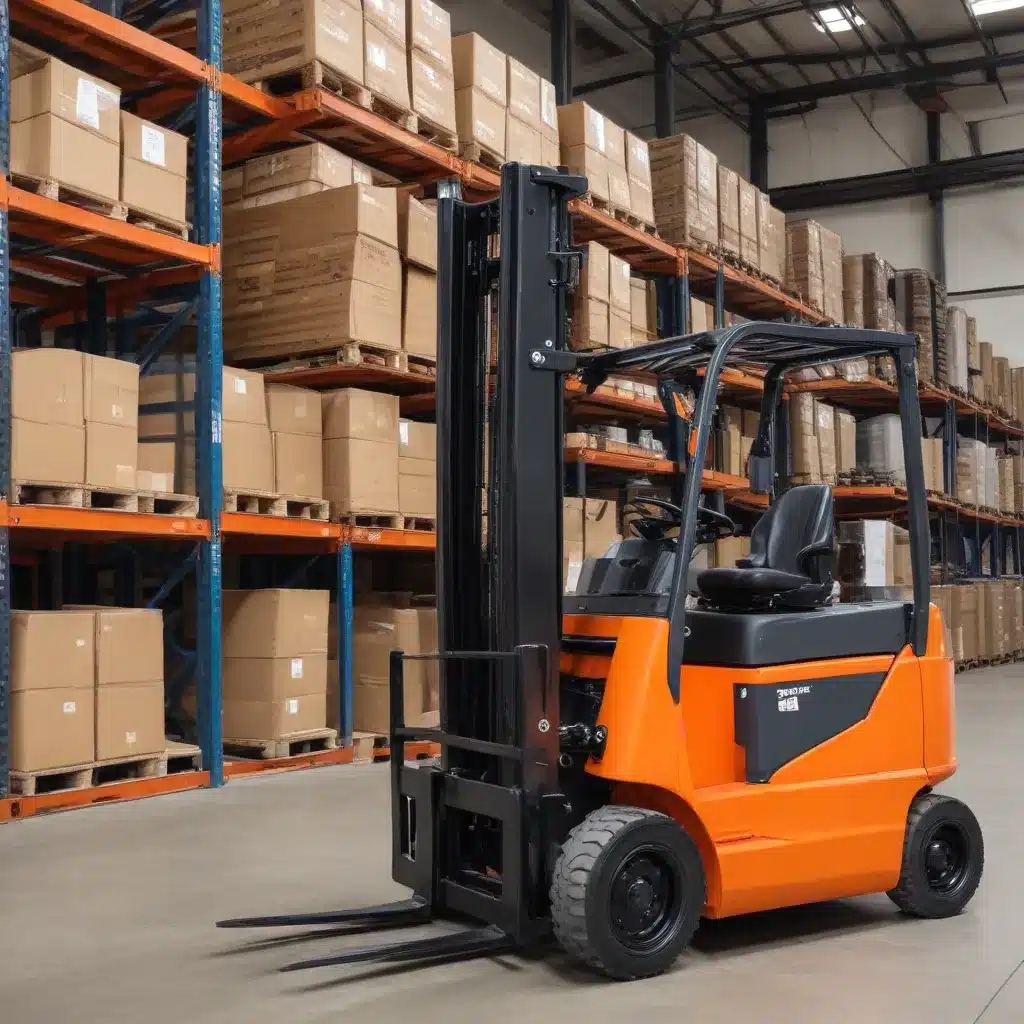
Unlocking Optimal Forklift Performance through Reliable Aftermarket Solutions
In the fast-paced world of industrial warehousing and logistics, downtime can be a crippling setback. When a forklift encounters a mechanical issue or needs a replacement part, immediate access to quality aftermarket support is crucial for maintaining operational efficiency. As an industry expert, I’ve witnessed firsthand how seamless forklift parts warranties and comprehensive aftermarket services can make all the difference in enhancing customer satisfaction and driving long-term success.
Understanding the Importance of Forklift Aftermarket Support
Forklifts are complex pieces of machinery, relying on intricate systems and specialized components to function at their best. When these critical parts require maintenance or replacement, having a reliable aftermarket supply chain can mean the difference between a brief hiccup and a prolonged production standstill. Forklift manufacturers that prioritize robust aftermarket programs demonstrate a deep commitment to their customers’ needs, ensuring that replacement parts are readily available and that expert technical support is easily accessible.
Navigating the Forklift Parts Warranty Landscape
One of the hallmarks of a quality aftermarket support system is a comprehensive parts warranty. Reputable forklift brands typically offer a range of warranty options, providing customers with the peace of mind that their investment is protected. From standard manufacturer warranties to extended coverage plans, understanding the nuances of these offerings can help businesses make informed decisions and avoid costly surprises down the line.
For example, many forklift manufacturers offer a standard warranty that covers the entire machine for a specified period, typically 12 to 24 months. This baseline coverage ensures that any defects in materials or workmanship are addressed at no additional cost to the customer. Additionally, some brands may provide extended warranties on select high-wear components, such as transmissions, hydraulic systems, or engines, further enhancing the overall value proposition.
When evaluating forklift parts warranties, it’s essential to pay close attention to the fine print. Factors like parts replacement, labor costs, and coverage limitations can vary significantly between manufacturers. By thoroughly understanding the warranty terms, customers can make informed choices and maximize the return on their forklift investment.
Leveraging Aftermarket Support for Optimal Forklift Performance
Beyond reliable parts warranties, comprehensive aftermarket support services can elevate the customer experience and drive long-term satisfaction. Leading forklift brands often provide a suite of value-added offerings, including:
-
Genuine Replacement Parts: Ensuring access to original equipment manufacturer (OEM) parts is crucial for maintaining forklift performance and preserving warranties. Genuine parts are engineered to work seamlessly with the machine, minimizing compatibility issues and the risk of further damage.
-
Rapid Parts Availability: Prompt delivery of replacement parts is essential for minimizing downtime. Forklift manufacturers with robust distribution networks and efficient logistics can often provide next-day or even same-day parts delivery, helping customers get their forklifts back in action quickly.
-
Expert Technical Support: When complex mechanical issues arise, having access to knowledgeable technical support can be invaluable. Experienced forklift technicians can provide troubleshooting guidance, offer maintenance recommendations, and ensure that repairs are carried out correctly the first time.
-
Preventive Maintenance Programs: Proactive maintenance is key to extending the lifespan of a forklift and maintaining peak performance. Manufacturer-backed maintenance programs can provide customers with regularly scheduled inspections, routine servicing, and timely part replacements, helping to minimize unplanned downtime and maximize productivity.
-
Tailored Training and Education: Forklift operators and maintenance personnel play a crucial role in ensuring the safe and efficient operation of these machines. Comprehensive training programs, including both hands-on and online resources, can empower employees to handle forklifts with confidence and effectively maintain them over the long term.
By leveraging these aftermarket support services, forklift customers can enjoy increased uptime, enhanced operational efficiency, and a superior overall ownership experience. This level of customer-centric approach not only fosters brand loyalty but also contributes to the long-term success and profitability of the business.
Industry Trends and the Evolution of Forklift Aftermarket Support
The forklift industry has witnessed a remarkable transformation in recent years, driven by the growing emphasis on customer satisfaction and the need for seamless aftermarket support. As technology continues to advance, forklift manufacturers are embracing innovative solutions to streamline their aftermarket offerings and better meet the evolving needs of their customers.
One emerging trend is the integration of digital platforms and data-driven insights to enhance the aftermarket experience. Through connected devices and advanced telematics, forklift operators and fleet managers can now access real-time information on machine performance, maintenance schedules, and parts availability. This data-driven approach enables proactive maintenance, facilitates predictive part replacement, and ultimately reduces unplanned downtime.
Moreover, the shift towards sustainability and environmental consciousness has also influenced the forklift aftermarket landscape. Manufacturers are now placing greater emphasis on offering eco-friendly replacement parts, promoting the refurbishment and remanufacturing of components, and implementing responsible disposal methods for end-of-life forklifts. These initiatives not only support the broader sustainability goals but also contribute to a more circular economy, ultimately benefiting both customers and the environment.
Conclusion: Elevating the Forklift Ownership Experience
In the dynamic world of industrial material handling, the aftermarket support ecosystem plays a pivotal role in shaping the customer experience. Forklift manufacturers that prioritize robust parts warranties and comprehensive aftermarket services demonstrate a deep understanding of their customers’ needs and a commitment to their long-term success.
By providing access to genuine replacement parts, rapid delivery, expert technical support, and value-added services, forklift brands can differentiate themselves in the market and foster lasting partnerships with their customers. As the industry continues to evolve, the most successful players will be those that seamlessly blend cutting-edge technology, sustainability initiatives, and an unwavering focus on customer satisfaction.
Ultimately, the forklift aftermarket is not just about selling parts and accessories – it’s about empowering businesses to operate at their full potential, minimizing downtime, and unlocking new levels of productivity and profitability. As an industry expert, I encourage forklift customers to closely evaluate the aftermarket support offerings of potential brands, as this crucial component can truly make the difference in enhancing the overall forklift ownership experience.

